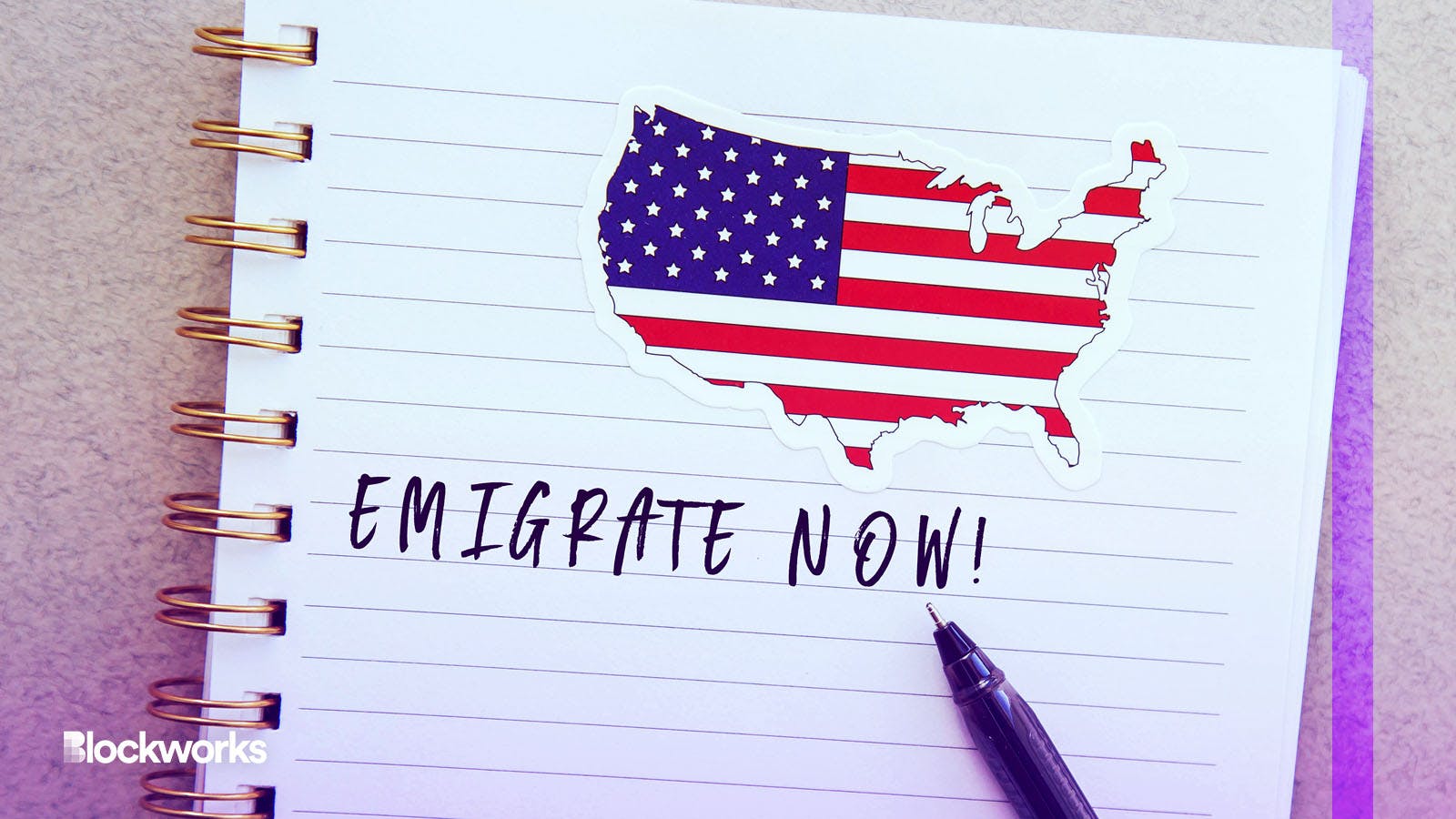Ripple Counsel’s Advice to Crypto Firms? Get Out of the US
After spending the past roughly thirty months building Ripple’s case, Stuart Alderoty has lots of tips… and he’s not shy about sharing them

There is finally an end in sight for Ripple’s years-long, multimillion dollar fight with the SEC. But the blockchain technology company has some advice for those facing the growing hostility of American regulators: Get out of the United States.
“The first advice you give, the first piece of advice you give somebody who’s thinking about a project, is don’t launch it in the US because the rules are unclear,” Stuart Alderoty, chief legal officer at Ripple, said in an interview with Blockworks Thursday. “Go to a jurisdiction where the rules are clear, not light-touch, but clear.”
After spending the past roughly thirty months building Ripple’s case, Alderoty has lots of tips, and he’s not shy sharing them.
“I do get calls,” he said. “‘Asking for a friend, what would you do if you got a Wells notice?’”
If a company is served a subpoena, or a Wells notice, or an enforcement action — and there have been no shortage lately — they need to operate under the assumption that the SEC’s case is already decided, Alderoty said.
“Don’t trust these guys,” he said. “It’s not a level playing field.”
It’s exactly the point he was getting at in Alderoty’s viral tweet Monday about SEC Chair Gary Gensler declaring everything but bitcoin a security in a New York Magazine interview. Gensler has his mind made up before the enforcement action is even filed, and that’s a problem, Alderoty argued.
“They should not be prejudging the outcome of unresolved issues,” Alderoty said. “They certainly should not be doing so in a very, very public way because it corrupts the process. It corrupts the perception of the process.”
Of course, any legal action on the basis of prejudgment is moot for Ripple now. The arguments have been filed. A summary judgment is expected any day; Alderoty said maybe as soon as the end of this month or the end of the year.
But for Alderoty, that’s not the point.
“For the folks that are kind of early in the process… I think you should seriously think about this as an issue,” he added.
As for Ripple and XRP, there are now, broadly speaking, three ways it could go, Alderoty said. One, the judge could side with Ripple; two, the judge decides with the SEC; or three, the judge says there are disputed facts and the case needs to go to trial.
“It’s not an issue of fraud, or market manipulation, it’s a question of law,” Alderoty said.
If the judge sides with the SEC, Ripple can, and will, immediately appeal. The case would go before the United States Court of Appeals for the Second Circuit and then, the next step would be the Supreme Court.
There are a lot of “ifs” between now and a Supreme Court case, but Alderoty likes his odds.
“I would be supremely confident that this is a winner in the Supreme Court, not so much because of the crypto issues but because of the guarding against building an administrative state,” he said in a nod to the Court’s current conservative majority.
A win in the summary judgment would mean Ripple has room to expand domestically.
“We [would] have this incredible business opportunity in the US, that is evergreen for us,” he said.






